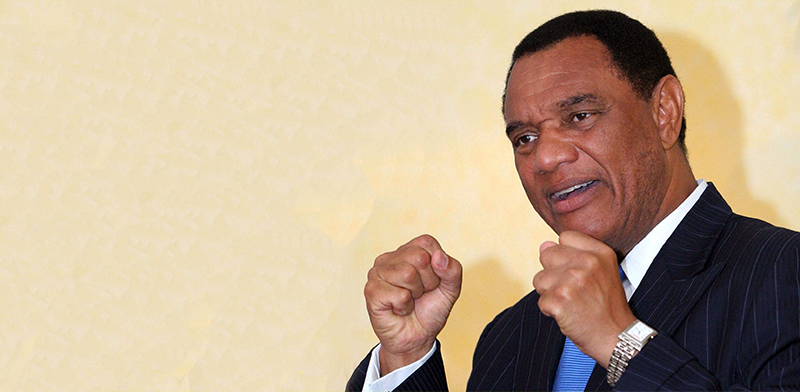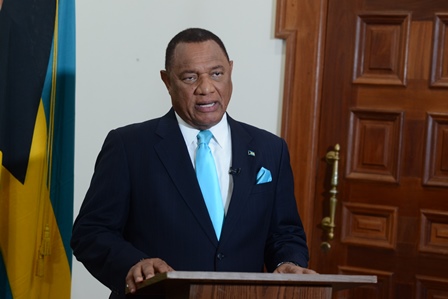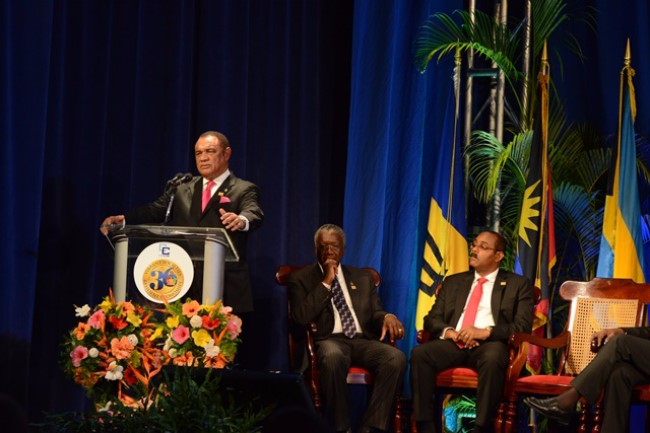CARICOM Heads of Government have agreed to establish a Committee of Finance Ministers to work with the Caribbean Association of Banks on a plan to deal with the region being unjustly labeled a high-risk area for financial services.
CARICOM Chairman, Prime Minister of The Bahamas Rt. Hon. Perry Christie made the announcement during the closing press conference of the 26th Inter-Sessional Meeting of the Conference of Heads of Government of the Caribbean Community (CARICOM) on Friday.
“Because in many cases our indigenous banks cannot provide a high level of reward, correspondent banks [in North America and Europe] are closing their relationships with them because of the claim that the Caribbean is a high-risk area for financial services,” Prime Minister Christie said.
“Unless this situation is addressed with urgency, the indigenous banks in each of our countries will be adversely affected in their operations” he added.
Immediate past CARICOM Chairman, Prime Minister of Antigua and Barbuda, Hon Gaston Browne told the Press Conference the threat will have an impact on trade and investments.
“The Caribbean Association of Banks have assets in excess of 30 billion US dollars. They are a very important part of the Region’s payment system. So that, if they’re unable to settle their transactions in the United States, Canada and Britain, that clearly has serious implications…”
“It means therefore that we wouldn’t be able to settle our trade transactions expeditiously. It also has implications for investments and we thought that rather than having the banks deal with these issues on their own, that there was need to elevate it to the level of the regional CARICOM governance and to have CARICOM as a whole address the issue with various entities, to include the IMF, the World Bank, OAS and also to have dialogue with the correspondent banks in the various countries” said the Antigua and Barbuda Prime Minister and Minister of Finance who will chair the Committee.
Other key decisions presented at the press conference:
CARICOM Heads agreed to place emphasis on developing the cultural and creative industries and the sport sector in a manner that would benefit the Community’s economies and societies as a whole. The Meeting specifically agreed to create the necessary legislation to advance the creative industries and establish a sustainable financing mechanism for the sector in collaboration with the CARICOM Development Fund and the Caribbean Development Bank and the private sector. The Region will look at the realignment of the education system to accommodate this thrust in those areas and in that context the work of the CARICOM Commission on Human Resource Development will be key.
There was agreement on the composition of the Marijuana Commission, which is expected to soon begin its work to look into the social, economic, health and legal issues surrounding the use of marijuana and to consult with stakeholders to get their views on the issue.
On the Reparation issue, the meeting agreed to pursue the cause of reparatory justice through a process of engagement with the relevant countries.
In an effort to improve implementation and overall governance of the Community, the Meeting approved the Functions for the Committee of Ambassadors which will work closely with the Organs and Bodies of the Community, the CARICOM Secretariat and the Community Institutions and Associate Institutions to establish and maintain an efficient system of consultations at the national and regional levels. It will also advance implementation, at the national level.






